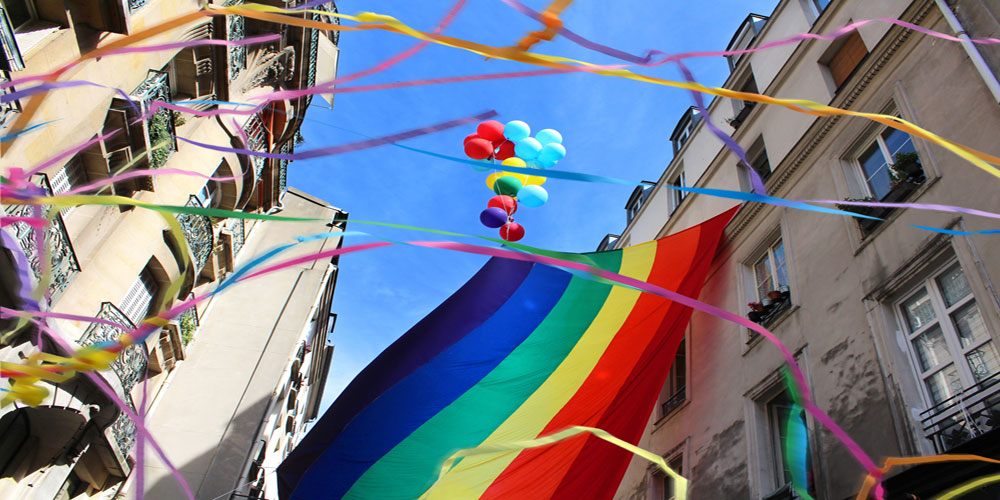London Trans Pride Breaks Records with Historic 100,000-Strong March
This past weekend, central London witnessed a powerful show of unity, resilience, and visibility as over 100,000 people came together for London Trans Pride, making it the largest Trans Pride event in history. Organisers called the turnout “record-breaking” and a clear message of solidarity in a time of political uncertainty for the trans community.
The march began at 1pm on Saturday at Langham Place, outside BBC Broadcasting House, and wound its way to Parliament Square Gardens, where speeches and performances brought the crowd to an emotional crescendo.
Among the speakers was Heartstopper actress Yasmin Finney and trans rights campaigner Caroline Litman, whose daughter, Alice, tragically died by suicide in 2022 after waiting nearly three years for gender-affirming healthcare. Their words underscored the urgent need for systemic change and support for trans lives.
This year’s event marks a significant increase from the 60,000 attendees in 2023, showing a 40,000-person surge that organisers say reflects growing urgency and support in the face of a hostile political climate. The march also comes just months after a controversial April Supreme Court ruling, which redefined the words “woman” and “sex” in the Equality Act 2010 to mean “biological woman” and “biological sex.” Many advocates say the decision could roll back protections for trans people.
A Community Responds to Setbacks with Strength
Bobby Harding, fundraising lead for London Trans+ Pride, said the overwhelming turnout was both energising and sobering.
“It’s a total honour to be part of history like this,” Harding said. “This is now the largest Trans Pride event in the world. We are more determined than ever to show up and make it clear that we deserve dignity, privacy, and basic human rights.”
But Harding also voiced deep concern about the ripple effects of recent legal decisions. In particular, they warned that the Supreme Court ruling may embolden everyday citizens to police trans people’s access to public spaces.
“It’s not just about law enforcement anymore. The danger is that individuals start taking matters into their own hands, acting like vigilantes. That’s terrifying.”
This concern echoes sentiments voiced in response to the Equality and Human Rights Commission (EHRC) interim guidance, which followed the ruling. The guidance recommends that trans women be barred from using women’s facilities in workplaces and public venues, and the same for trans men in men’s spaces.
While the Cabinet Office has said there will be no “toilet police,” the British Transport Police have already updated their policy to require trans people in custody to be strip-searched according to their birth sex.
Calls for Transparency and Action
Alex Parmar-Yee from the Trans+ Solidarity Alliance also attended Saturday’s march and spoke about the need for accountability and transparency in government policy.
“This guidance hasn’t brought clarity—it’s going to devastate lives,” Parmar-Yee said. “It’s happening behind closed doors, without input from the very people it impacts.”
She stressed that this year’s turnout made clear that the trans community is not alone.
“It’s a real focal point. A key moment where we can concentrate that energy and push back against harmful narratives.”
Parmar-Yee also highlighted the dangerous rhetoric around trans issues in both public discourse and policy-making, drawing comparisons to proposed “bathroom bans” in the U.S.
“The UK shouldn’t be heading down a path that would make someone like Donald Trump proud,” she warned.
A Message of Defiance and Hope
One of the event’s founding members, Lewis G Burton, summed up the spirit of the day in a powerful statement:
“This year’s London Trans+ Pride made history once again… At a time when sweeping legal decisions are being made without consulting a single trans person, our community came together to show what real strength, solidarity, and care look like.”
Burton continued:
“You can try to take away our rights, but you will never remove us from society. Our existence is natural, historic, and enduring.”
As the EHRC prepares to release a more detailed code of practice later this summer, advocates and organisers say they are more motivated than ever to hold policymakers accountable, and to keep fighting for a future where trans people can live openly, safely, and with dignity.
